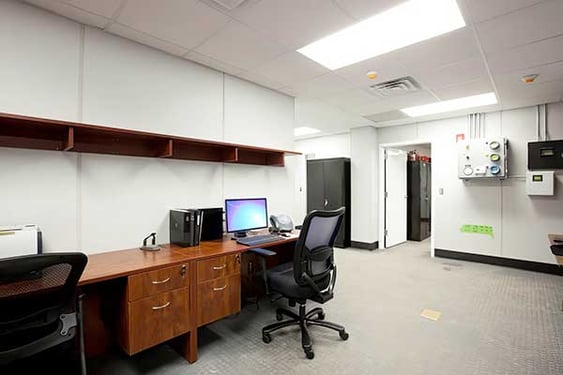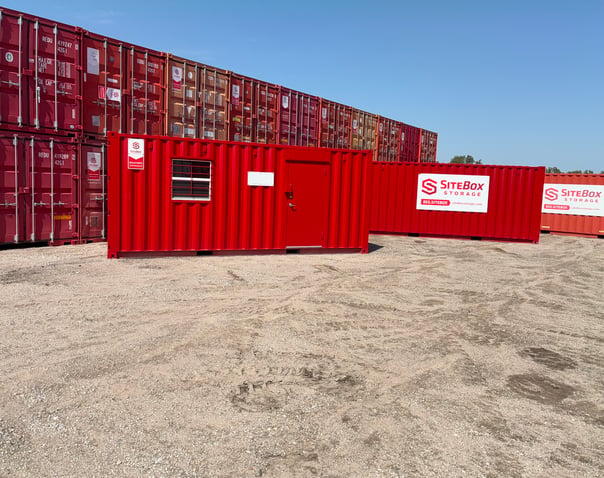Choosing the Right Temporary Office
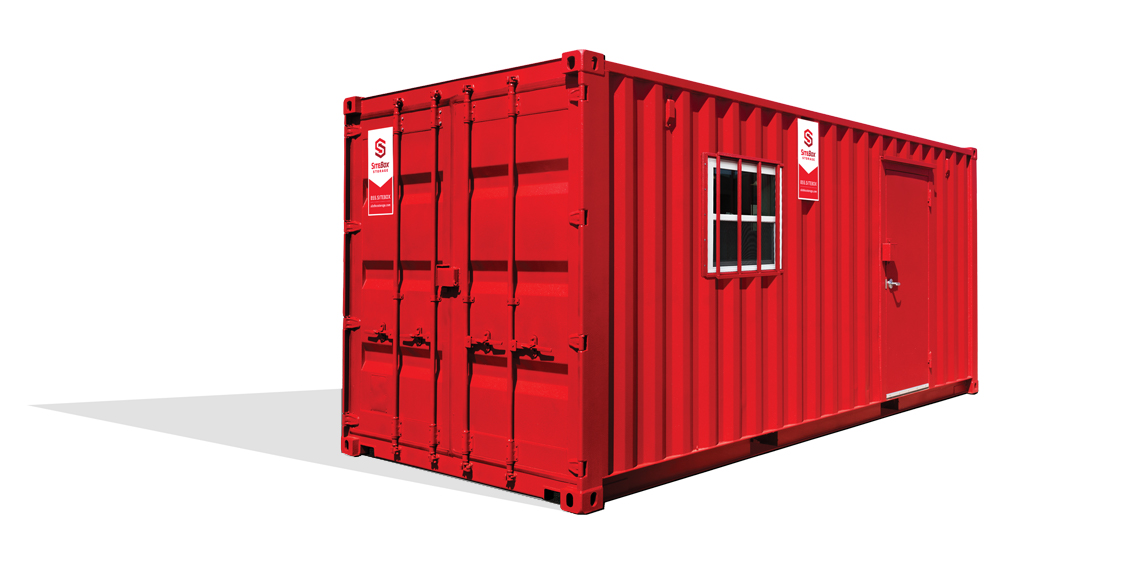
You've got a permanent office somewhere. But there are moments when that space just isn't enough. Projects ramp up. Construction sites need onsite management. Renovations force everyone out. Suddenly you're scrambling for additional workspace, and you need it yesterday.
That's where temporary offices come in. Not all mobile office solutions look the same. Some work brilliantly for certain situations but fall flat in others. Let's break down your options so you can pick something that actually solves your problem.
Types of Temporary Offices
Three main types exist, each with distinct advantages.
Dedicated rental office spaces look like real offices because they are—just not yours permanently. These pop up in refurbished warehouses, unused buildings, coworking complexes. Walk in, everything's ready: furniture, lighting, utilities. Daily and weekly rentals work for short-term needs.
Mobile office trailers resemble mobile homes configured as workspace. Think car dealerships, new housing developments, construction sites. They're comfortable and presentable once you add skirting and dress up the exterior. Units come complete with electrical, plumbing, and mechanical fixtures meeting local codes.
Cargo container offices won't win beauty contests. Boxy, bulky, industrial-looking. But nearly indestructible—built from steel shipping containers. Inside? Almost a blank slate you can customize however you need. Construction sites, disaster command centers, anywhere you need rugged workspace.
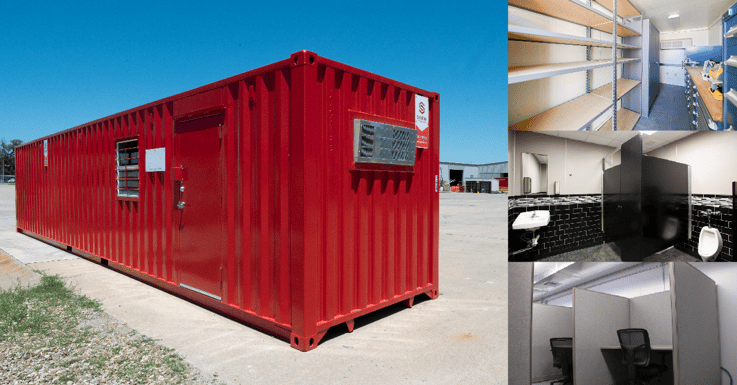
Benefits of Mobile Offices
About 72.5% of companies rely on temporary offices during project peaks. Here's why.
Flexibility matters most. Need workspace at a remote site? Done. Testing new markets? Perfect. Managing disasters? Mobile offices deploy fast without long-term real estate commitments.
Setup speed changes everything. Mobile offices reduce setup time by an average of 18.3 days versus traditional spaces. Most get operational in under one day once delivered.
Cost savings run deep. Mobile offices slash operational costs by approximately 27.6% versus fixed spaces. No long-term leases. No property taxes. Pay only for what you need, when you need it.
Around 64.7% of users report improved employee flexibility. Workspace right where projects happen means less commute, faster problem-solving, better communication between office and field teams.
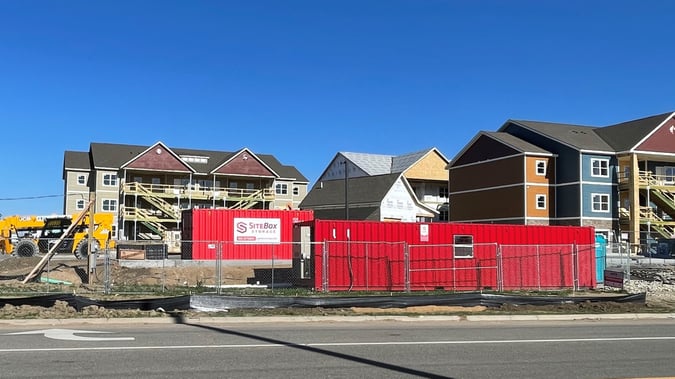
Key Features to Consider
Location matters. Rental offices require commuting. Mobile trailers and containers come to you—job site, parking lot, wherever. Ground-level containers beat trailers here. No stairs needed.
Durability varies wildly. Rental spaces offer standard security. Trailers work fine in controlled environments. Container offices? Nearly bulletproof. Steel handles wind, weather, even forklifts. Rodent-resistant too.
Customization determines functionality. Rentals come furnished or not. Trailers offer layout options within limits. Containers give maximum flexibility—split into office and storage, design however you need.
Amenities should match needs. Heat, AC, electricity, plumbing—verify everything works. Internet and phone lines matter enormously. Some providers preinstall network infrastructure.
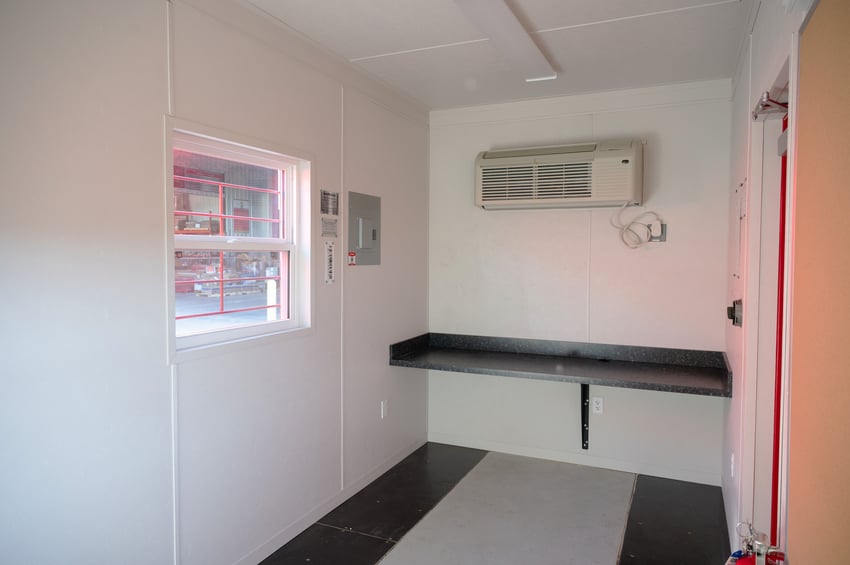
Setting Up a Mobile Office
Assess workspace requirements first. How many desks? What equipment? Make a detailed list and measure everything to ensure it fits.
Check local regulations. Some areas restrict temporary structure placement. Others require permits. Building codes apply to mobile offices—electrical, plumbing, safety requirements all need compliance.
Prepare the site before delivery. You need level ground. Clear overhead obstructions—power lines, tree branches. A 40-foot container needs 40 feet of clear space plus delivery truck room.
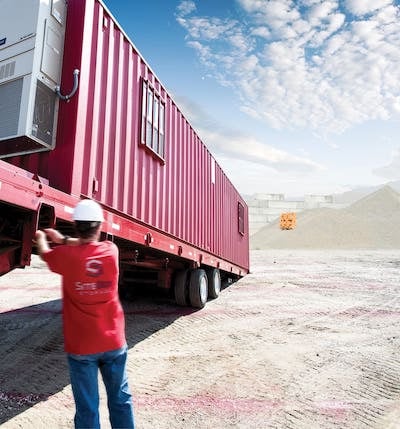
Arrange utility connections early. If your office needs external power, water, or sewer hookups, coordinate with contractors ahead. Last-minute scrambling adds delays and costs.
Technology and Connectivity Solutions
Internet isn't optional. Most providers can preinstall network hardware. If not, arrange installation separately. Consider bandwidth—video conferences and cloud applications need serious capacity beyond cheap residential internet.
Phone systems require thought. Forwarding to mobiles works short-term. Longer deployments might justify VoIP systems or temporary line installation.
Count your devices—computers, monitors, printers, climate control. Make sure electrical capacity handles the load without tripping breakers. Surge protection saves equipment.
Data security stays important. If handling sensitive information, ensure network security and proper equipment disposal when finished.
Cost Analysis and Budgeting
Rental office buildings charge by day, week, or month. Daily rentals run expensive but make sense for brief needs. Monthly leases drop costs considerably—expect a few hundred to several thousand depending on location and size.
Mobile trailers usually require monthly rentals on 28-day cycles. Some offer shorter terms with extra fees. Staging costs make super short-term (under a week) prohibitively expensive.
Container offices also typically lease monthly. Rates depend on size and customization. The advantage? Lease-to-own options or outright purchases work for extended needs. Used containers cost less than new.
Don't forget hidden costs: delivery, pickup, utility hookups, site prep, permits, insurance. Budget 15-20% above base rental.
Compare total costs against timeline. Renting two months? Cheapest option. Need workspace for a year? Purchasing might save money.
Customization Options
Rental buildings offer limited customization—you get what's there. Maybe rearrange furniture, but structural changes aren't happening.
Trailers allow design input during ordering. Choose floor plans matching workflow. Specify desk placement, partition walls, restroom location. Once delivered, you're stuck with that layout.
Container offices provide maximum flexibility. Work with providers on interior design before delivery. Add partition walls, shelving, cabinets, counters, restrooms for combo units. Some offer standard floor plans you can customize. Others build completely custom solutions.
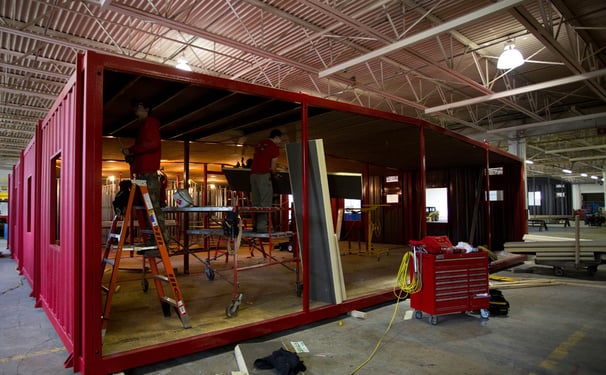
Exterior matters too. Containers can add windows, personnel doors, awnings, even paint making them less industrial-looking. Trailers benefit from skirting hiding their mobile home origins.
Compliance and Regulations
Mobile offices must meet local building codes. Electrical, plumbing, fire safety—all require proper installation and inspection. ADA accessibility may apply depending on business and location.
Zoning determines where you can place temporary structures. Some areas restrict commercial activity. Others limit duration. Check with local planning before committing.
Insurance requirements shift with temporary locations. Verify coverage with your provider.
Environmental regulations can surprise you—waste disposal, stormwater runoff potentially regulated depending on industry.
Use Cases and Industries
Construction companies dominate usage. Job site management, blueprint storage, meetings—all easier with onsite workspace. Container offices shine here thanks to durability.
Education institutions use temporary offices during renovations, enrollment surges, or emergencies. Schools deploy mobile offices as temporary classrooms or administrative space.
Events and festivals require workspace for coordination, ticket sales, vendor management. Trailers work well—presentable, easy setup.
Disaster response depends on rapidly deployable workspace. Containers serve as command centers during emergencies.
Retail businesses test new markets using temporary sales offices before committing permanently. Real estate developers use them at housing developments.
Industrial facilities needing space during maintenance, expansions, or installations rely on mobile offices keeping operations smooth.
Maintenance and Upkeep
For rental buildings, property owners handle maintenance. Report issues promptly—HVAC, plumbing, electrical problems.
Trailers and containers require hands-on attention. Check HVAC filters monthly. Monitor for leaks after rain. Keep doors and locks functioning. Report structural issues immediately.
Interior cleanliness stays your responsibility. Regular cleaning prevents pests and maintains professional appearance. Sweep regularly, wipe surfaces, empty trash, maintain restrooms.
Prepare for seasons. Winter means preventing frozen pipes and checking heating. Summer requires verifying AC works and checking for storm leaks.
Frequently Asked Questions
What is a temporary office?
Temporary offices are portable workspaces for short-term business needs—rental buildings, trailers, or cargo containers. They provide functional workspace during construction, renovations, expansions, or disasters. Setup runs under one day, with basic office essentials included.
What is a mobile office?
Mobile offices are workspace in transportable structures like trailers or containers. They deliver directly to your location and relocate as needed, including utilities—electricity, climate control, sometimes plumbing.
How quickly can a mobile office be set up?
Most become operational in under one day once delivered. Mobile offices reduce setup time by an average of 18.3 days compared to traditional spaces.
What are the benefits of a temporary office?
They provide flexibility during transitions, cost 27.6% less than fixed spaces, deploy quickly, and go where you need them. About 72.5% of companies use temporary offices during project peaks.
Are mobile offices cost-effective?
Yes. No long-term leases, property taxes, or major maintenance overhead. Temporary office rentals increased 12.9% annually over five years because businesses recognize cost advantages.
Can I customize a mobile office?
Depends on type. Rentals offer minimal changes. Trailers allow floor plan input. Containers provide maximum flexibility—design layout, add walls, install custom features, modify exterior.
How long can I use a temporary office?
Duration depends on provider and regulations. Most lease monthly with 28-day cycles. Some offer shorter terms. Long-term use is possible—lease-to-own or purchases work for extended needs.
Where can I rent a mobile office?
Providers operate throughout most regions. Search for suppliers offering delivery to your location. Companies like SiteBox Storage serve California, Tennessee, and South Carolina. Contact providers for quotes and availability.
Are mobile offices climate-controlled?
Most modern units include heating and AC. Containers and trailers typically come with HVAC installed. Verify climate control is included when getting quotes—not always standard on basic units.
What types of businesses use mobile offices?
Nearly every industry. Construction for job sites, education during renovations, events for coordination, disaster response for command centers, retail testing markets, industrial during expansions. Around 64.7% of users report improved employee flexibility.
Picking the right temporary office comes down to matching solution to situation. Need short-term professional workspace? Rental buildings work. Require presentable mobile workspace? Trailers fit. Operating in harsh environments? Containers can't be beat.
Consider timeline, budget, location, and workspace needs. Factor setup speed, customization, and compliance. Armed with this information, you can confidently select solutions keeping your business running smoothly.

